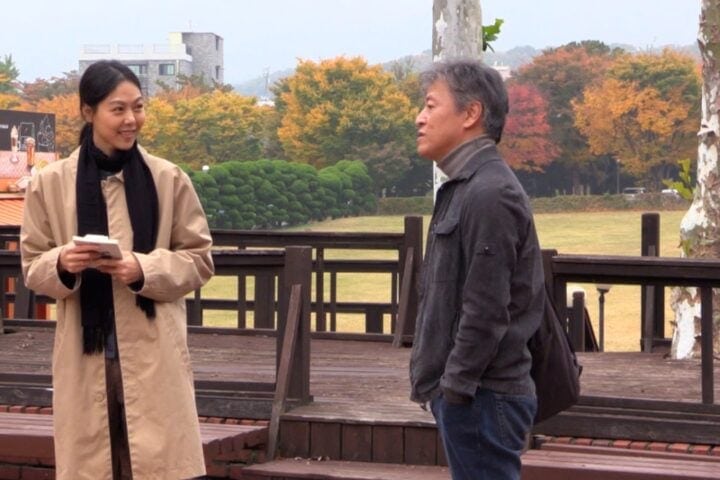That Truong Minh Quy’s new queer romance-cum-sociohistorical lament Viet and Nam was banned by the country whose name forms its title will probably surprise few Western audience members. And yet, it reportedly wasn’t the central relationship between two young men that was the sticking point for Vietnamese censors but, rather, the film’s “gloomy, deadlocked and negative view” of the country and its denizens. Which probably says as much for the increased stature of LGBTQ+ visibility on the global stage as it does about the troublesome uptick in reactionary nationalism as the world’s collective migrant crisis continues to widen in scope, which very well could threaten to diminish the progress made on the former.
As the film opens, Viet and Nam (Dao Duy Bao Dinh and Pham Thanh Hai, given a shared line in the closing credits but playing more or less discrete characters) are shown working alongside each other in the dark yet twinkling depths of a mine, caked in soot and blithely musing about just how much coal dust their lungs can hold. Though they pass themselves off as brothers, they are in fact lovers who only consummate their passion between the whistles announcing the arrival of their midday break. At least so it seems, because the film’s almost interstitial mine sequences are presented in such liminal fashion as to register as a particularly grimy version of escapist fantasy; the walls of their hideaway sparkle as if from a Pierre et Gilles tableau.
Up on ground level, Nam’s mother, Hoa (Thi Nga Nguyen), somnambulates as though suspended in time, unable to advance from their shared, aimless poverty without finding closure on the fate of Nam’s father, who disappeared on the battlefield back in the waning days of the Vietnam War. Like his mother, Nam is haunted in his sleep by dreams of a soldier figure he imagines to be his father (but who he, in one amusing postcoital admission, also sublimates onto his lover Viet, much to the latter’s chagrin). Throughout the film, Nam and Hoa’s yearning to put their beloved ghost to bed intertwines with Nam’s own nascent awareness that emigration from his back-broken homeland is his only possible salvation.
Deliberately paced and prone to indulge in poetic intermezzos, at once earthy and otherworldly, Viet and Nam has earned comparisons to the work of Alain Guiraudie, Apichatpong Weerasethakul, and others. (It’s of absolutely no surprise when Quy affectedly cuts to the film’s title card almost an hour into the runtime.) But if the film is undeniably conversant with many of the prevailing trends in international art cinema, especially those of the slow variety, Quy also doesn’t shy away from staring down the incensing specificities of current events.
Quy has said in interviews that his film was at least partially a response to the deaths of 39 Vietnamese refugees, discovered in a refrigerated trailer outside of London in 2019. And interestingly enough, the further Viet and Nam progresses into its increasingly symbolic and fragmented second half—forget Weerasethakul, Quy at times seems to be channeling Muriel-era Alain Resnais—the more direct and polemical it also becomes.
In one jarring sequence, a psychic woman (Khanh Ngan), her face painted white, guides grieving families through killing fields, bidding them to dig holes and scooping up clumps of hardened soil that she tells them are all that remains of their departed loved ones. Whether she’s telling the truth in this moment or merely taking her followers for a ride is beside the point. What registers is their raw grief, insurmountable even across the decades and generations.
Viet and Nam’s final moments are a haunting gut punch, but the image that lingers most powerfully is that of one of the lovers patiently removing soot-sodden wax from the other’s ear, framed so that the sparks of a nearby industrial saw become the visual manifestation of their tender endurance. That image is a stunning distillation of the film’s mysteries, and a testament to Quy’s ability to mine beauty from both collective desolation and individual endurance.
Since 2001, we've brought you uncompromising, candid takes on the world of film, music, television, video games, theater, and more. Independently owned and operated publications like Slant have been hit hard in recent years, but we’re committed to keeping our content free and accessible—meaning no paywalls or fees.
If you like what we do, please consider subscribing to our Patreon or making a donation.



